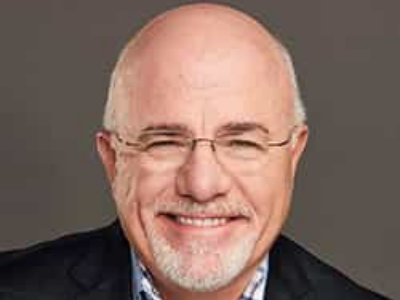Ryder Cup has power to divide -- or unite -- during fraught and fragile time in the US
News > Sports News

Audio By Carbonatix
9:47 AM on Wednesday, September 24
By EDDIE PELLS
FARMINGDALE, N.Y. (AP) — Often sports, at their best, are the purest form of competition. They offer a chance to pick winners and losers in showdowns between rival teams, countries, sometimes even worldviews, in an arena where the games are played for high stakes but, ultimately, not for life and death.
This week’s Ryder Cup is an example of that.
It’s the biennial U.S. vs. Europe matchup on the golf course — an affair that has grown more contentious, occasionally uncomfortable and at times alarmingly petty over the past four decades.
This year’s edition has the added intrigue of being played in front of what is historically one of golf’s most bombastic and least-forgiving crowds that will converge at the country's toughest public course — Bethpage Black on Long Island. Adding to the mix, none other than President Donald Trump is set to be on hand for Day 1, just days after telling many European leaders their countries were “ going to hell.”
As much as teasing out Scottie Scheffler’s chances against the fan favorite-turned-loyal opposition Rory McIlroy, one of the biggest challenges heading into these matches is figuring whether golf might have the power to unite a divided country.
Could it give Americans — or its sports fans, at least — a break in the nonstop news cycle that has made the country feel all the more fraught and fragile since the assassination of conservative activist Charlie Kirk earlier this month?
Could it bring Democrats and Republicans together to scour the daily pairings and root for nothing more than a few made putts by the guys in red, white and blue?
And if it accomplishes any of that, how will McIlroy — along with another gallery favorite, Tommy Fleetwood — and 10 teammates from Europe bear the brunt of this newfound (if only temporary) unity?
For 51 weeks in a typical year, the dividing lines at the highest level of pro golf are not about countries or continents.
This dynamic took a complicated twist four years ago when investors from Saudi Arabia piled billions into a breakaway league, LIV Golf, that fractured and forever changed this game.
Back then, McIlroy, from Northern Ireland, was considered the good guy by lovers of the status quo because he refused to abandon the PGA Tour.
Bryson DeChambeau, from California, was viewed differently because he left for LIV.
A few years passed, both players won majors — McIlroy completed his career grand slam by capturing the Masters — and their reputations shifted.
McIlroy was perceived as more aloof while DeChambeau opened a new trove of fan worship by establishing himself as an entertaining fixture on YouTube.
More recently, they’ve been exchanging barbs in the press, the freshest of which was McIlroy telling The Guardian: “To get attention he will mention me or Scottie (Scheffler) or others.”
Those trends would seem to line up perfectly for an “Us vs. Them” storyline in New York: the growingly detached European against the American golfing everyman.
But how to handicap the reaction for, say, Fleetwood or Patrick Cantlay?
Five short weeks ago, American golf fans rejoiced when Fleetwood, the hard-luck Brit known as “Fairway Jesus” for his flowing locks of brown hair, broke through for his first PGA Tour win and the $10 million prize that went with it at the Tour Championship.
Among those he held off was Cantlay, an American who goes around the course in relative peace these days.
Things haven’t quite been the same for him since two years ago, when his decision not to wear a “USA” hat at the Ryder Cup was speciously portrayed as a protest for not being paid to play in the event. Cantlay insisted — then and now — the hat simply didn't fit.
Asked about it this week, Cantlay said “I think we need to put 100% of our focus on playing the best golf we can and let the noise be exactly what it is, just noise."
There has always been plenty of noise.
Their pasts aside, if this Ryder Cup is like many recent versions, the Americans, even Cantlay, will be treated like the beloved home team. And the Europeans, even Fleetwood, will be treated with polite disregard.
That would be under the best of circumstances.
European captain Sam Torrance called the American green-storming celebration during the 1999 comeback at Brookline “the most disgusting thing I’ve ever seen in my life.”
Eight years before that, bickering and bad feelings infiltrated a tight U.S. victory in what was billed, however unfittingly, as the “War on the Shore,” while the country was on a high after wrapping up the Gulf War in Iraq.
Just two years ago, McIlroy and Cantlay’s caddie, Joe LaCava, got into a shouting match on the 18th green that led to McIlroy having to be restrained when another American caddie, Jim “Bones” Mackay, tried to smooth things over. That became a rallying cry for a European win in Rome.
Now the stage is New York, and it brings potential for all sorts of reactions. Bethpage Black is the course where a former European stalwart, Sergio Garcia, flipped off heckling fans at the U.S. Open in 2002.
Jerry Tarde, the longtime Golf Digest editor-in-chief, tells of spearheading a “Be Nice to Monty” campaign ahead of that same U.S. Open. Monty is Colin Montgomerie, the tart Scotsman and one-time Ryder Cup regular who was routinely brutalized by American crowds, taking on nicknames like “Mrs. Doubtfire” and worse.
By 2006, Tarde says, the campaign had worked and “Monty” had become a folk hero of sorts — his double bogey on 18 at another New York course, Winged Foot, eliciting groans, not jeers, from the crowd as he squandered a chance to win the U.S. Open.
“Rory and Tommy are different,” Tarde said. “They’re already heroes, in Europe and America. Despite some drunken outliers, I think they’ll get fair treatment here.”
In maybe the strangest twist of all, it’s the Europeans — players representing not a single country but a conglomeration of them that are struggling to absorb the U.S.'s changing role in the international hierarchy — who have better adapted to the Us vs. Them ethos that overtakes golf every two years.
Europe is 13-6-1 in the Ryder Cup since 1985. The momentum took off with a push from the great Spanish champion, Seve Ballesteros.
To Americans, who loved him as much as anyone during a normal week, Ballesteros stood too close to his opponents, coughed too loudly while they hit, celebrated too hard when he won.
To Europeans, he is everything. Ballesteros died in 2011, but Team Europe has made a point of placing his likeness on team uniforms, plastering it in its locker rooms and conjuring memories to keep his spirit alive.
McIlroy might have best embodied that spirit four years ago at Whistling Straits, when he cried toward the end of a rare European blowout loss.
“I have never really cried or got emotional over what I’ve done as an individual. I couldn’t give a (expletive),” he said.
But the Ryder Cup, he said, means more than that.
It will mean something more — or something different, at least — over three days at unforgiving Bethpage Black.
___
AP golf: https://apnews.com/hub/golf










